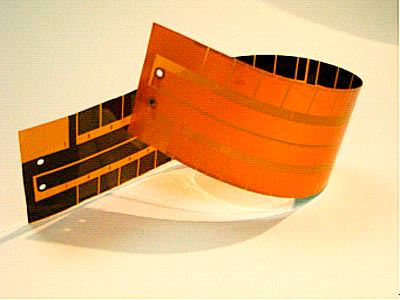
The electronics industry has been transformed by the rise of flexible printed circuit boards (PCBs). These innovative components have enabled manufacturers to design devices that are lighter, smaller, and more adaptable to various shapes and uses. As the demand for high-performance, space-saving electronics grows, the role of a flexible PCB manufacturer becomes increasingly critical in delivering the technology of tomorrow.
In this blog, we’ll explore the trends driving the evolution of flexible PCB manufacturing and how businesses can harness these advancements to stay competitive.
The Rising Demand for Flexible PCBs
Flexible PCBs are redefining what’s possible in electronic design. Unlike rigid boards, flexible PCBs bend and adapt to fit into unique spaces, making them ideal for compact devices like wearables, medical equipment, and next-generation automotive systems.
Leading flexible PCB manufacturers are responding to this demand with cutting-edge designs that offer improved durability, reliability, and functionality. Their ability to produce high-quality boards with advanced materials ensures that the electronics market remains agile and ready for future challenges.
If you want to discover how flexible PCBs can enhance your products, you can check over here for innovative manufacturing solutions.
Key Trends in Flexible PCB Manufacturing
Miniaturization and High-Density Interconnects (HDI)
One of the most significant trends in flexible PCB manufacturing is miniaturization. With devices like smartphones, wearables, and IoT gadgets requiring smaller components, manufacturers are embracing High-Density Interconnect (HDI) technology.
HDI flexible PCBs allow for more components to fit on smaller surfaces, maximizing functionality without compromising quality. A trusted flexible PCB manufacturer integrates HDI technology to produce boards with fine lines, reduced vias, and enhanced electrical performance, paving the way for ultra-compact devices.
Use of Advanced Materials
The choice of materials in flexible PCB manufacturing significantly affects durability, heat resistance, and signal integrity. Innovations in materials, such as polyimide films and liquid crystal polymers (LCPs), are becoming standard in the industry.
These materials enhance flexibility, reduce weight, and increase reliability in harsh environments. Industries such as aerospace and automotive heavily rely on flexible PCBs made from these advanced materials to ensure safety and performance.
Integration with Wearable Technology
Wearables like smartwatches, fitness trackers, and health monitors demand lightweight, flexible, and robust circuit boards. Flexible PCBs enable seamless integration into curved or compact designs, making them essential for the wearables market.
A forward-thinking flexible PCB manufacturer provides customized solutions that meet the stringent requirements of wearable devices, including biocompatibility, water resistance, and extended battery life.
Sustainability in Manufacturing
Sustainability has become a cornerstone in modern electronics manufacturing. Many flexible PCB manufacturers are adopting eco-friendly practices, such as using recyclable materials and minimizing waste during production.
Additionally, flexible PCBs themselves contribute to sustainability by enabling energy-efficient designs and reducing material usage in electronic devices. For companies aiming to align their products with green initiatives, working with environmentally conscious manufacturers is a priority.
The Shift to Automation and Smart Factories
Automation and the implementation of Industry 4.0 technologies are transforming flexible PCB manufacturing. Automated processes improve precision, reduce errors, and shorten production times, allowing manufacturers to meet growing demands with efficiency.
Smart factories, powered by IoT and AI, further enhance the production of flexible PCBs by enabling real-time monitoring and adaptive manufacturing practices. These advancements ensure consistent quality and scalability for high-volume production.
The Role of Flexible PCBs in Emerging Industries
Flexible PCBs are no longer limited to traditional electronics. They are now central to innovations across various sectors:
- Medical Devices: Flexible PCBs enable the development of advanced diagnostic and therapeutic devices, such as implantable sensors and portable imaging systems.
- Automotive: With the rise of electric and autonomous vehicles, flexible PCBs are essential for applications like in-dash displays, battery management systems, and advanced driver-assistance systems (ADAS).
- Aerospace: Lightweight and durable flexible PCBs are crucial for avionics and satellite systems, where space and weight constraints are critical.
- Consumer Electronics: From foldable smartphones to next-generation gaming consoles, flexible PCBs provide the foundation for sleek, innovative designs.
Choosing the Right Flexible PCB Manufacturer
Partnering with a reliable flexible PCB manufacturer is key to unlocking the potential of your products. Look for manufacturers who offer:
- Custom Design Capabilities: Tailored solutions that meet your unique product specifications.
- Proven Expertise: A track record of success in delivering high-quality flexible PCBs for diverse industries.
- State-of-the-Art Facilities: Access to advanced equipment and processes for precision manufacturing.
- Sustainability Practices: Commitment to eco-friendly production methods and materials.
Conclusion
The evolution of flexible PCB manufacturing is driving innovation across industries, making previously unimaginable designs a reality. As these trends continue to shape the future, businesses must adapt to leverage the capabilities of flexible PCBs effectively.
By partnering with an experienced flexible PCB manufacturer, you can bring groundbreaking ideas to life while staying ahead in the competitive electronics market.
Flexible PCBs are not just a component—they’re a revolution in how electronics are designed, manufactured, and utilized. Embrace this technology today to shape a smarter, more connected tomorrow.

0 Comments
Post Comment